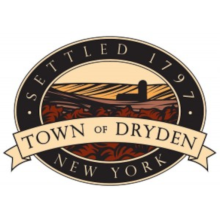Dryden, New York, population 14,500, has formally launched the town’s municipal broadband network, becoming the first municipality in the state to provide residents with direct access to affordable, publicly owned fiber.
According to the Dryden Fiber website, the town now offers local access to fiber broadband at three speed tiers: symmetrical 400 Megabits per second (Mbps) for $45 a month, symmetrical 700 Mbps for $75 a month, and symmetrical gigabit broadband service for $90 a month.
The city’s pricing options are a dramatic improvement from the area’s regional cable monopoly Charter Communications, whose Spectrum-branded service has largely monopolized vast swath of upstate New York, leaving consumers saddled with high prices, spotty coverage, slow speeds, and some of the worst customer service of any company in America.
It’s also a dramatic improvement over the sluggish, expensive, dated Frontier DSL that peppers the green rolling hills of Tompkins County. After filing for bankruptcy for failing to upgrade its network to fiber, Frontier has promised improvements–but none of those improvements have found their way to rural upstate New York.
The full cost of Dryden’s municipal network is expected to be $15 million. The pilot area of the project—covering around 50 residences in the southwest part of the town—will be funded by a combination of $2 million in federal COVID-19 disaster relief funding, an Appalachian Regional Commission grant and an as-yet-unspecified number of bonds.
“We were motivated to study and build a municipal broadband system because residents were not satisfied with the options and service provided by commercial ISPs,” Dryden Town Supervisor Jason Leifer told ILSR.
“In 2019 we commissioned a study and found that we could offer the service with newer technology and better pricing over the long term,” Leifer said. “90% of respondents to our household survey supported the project. Dryden was ahead of the curve on the broadband issue because we knew prior to COVID that access to reliable and affordable high-speed internet service is a necessity for our residents.”
Like countless U.S. communities, the pandemic highlighted the essential need for uniform, affordable access, something both Spectrum and Frontier consistency refused to provide, Leifer said.






